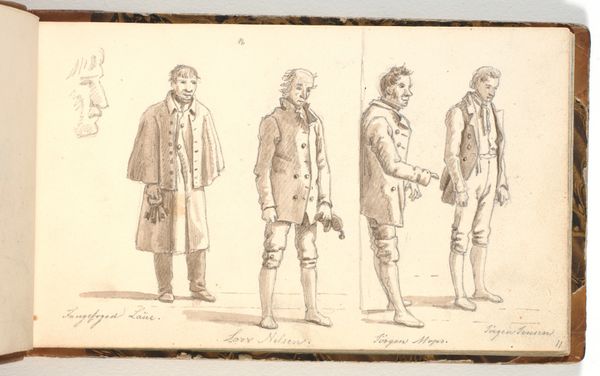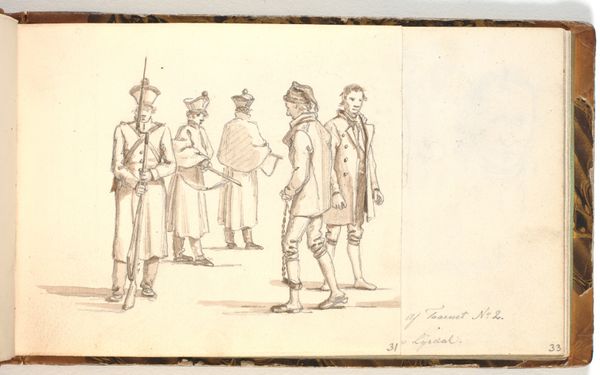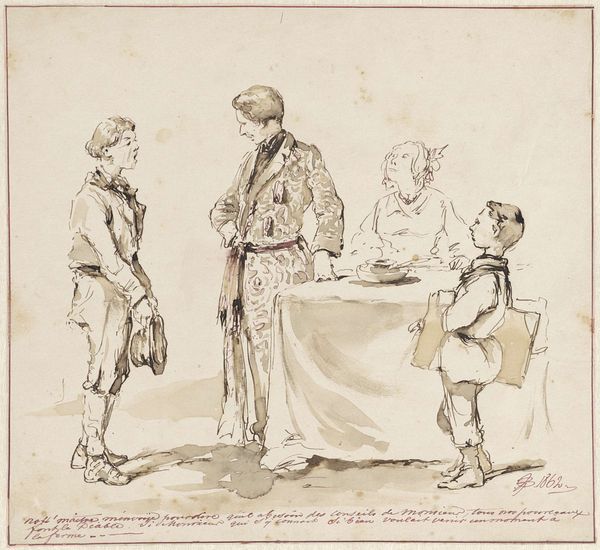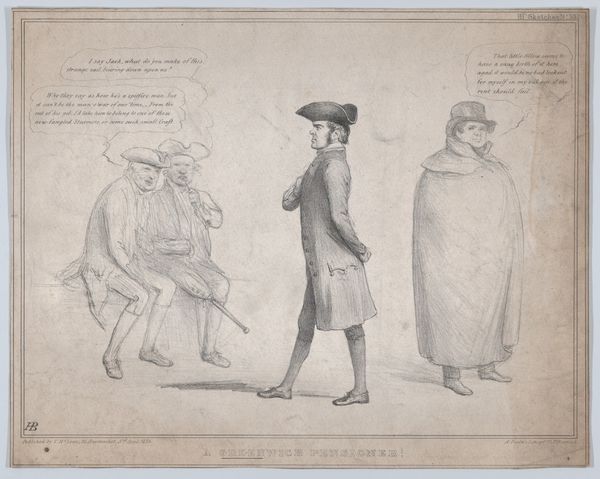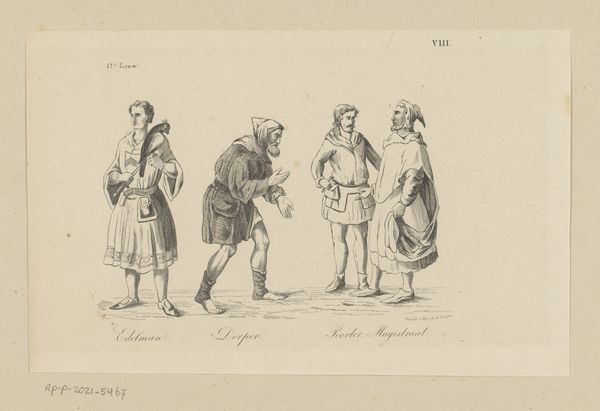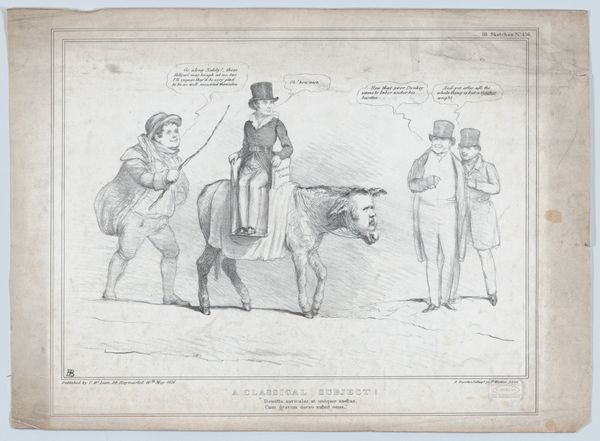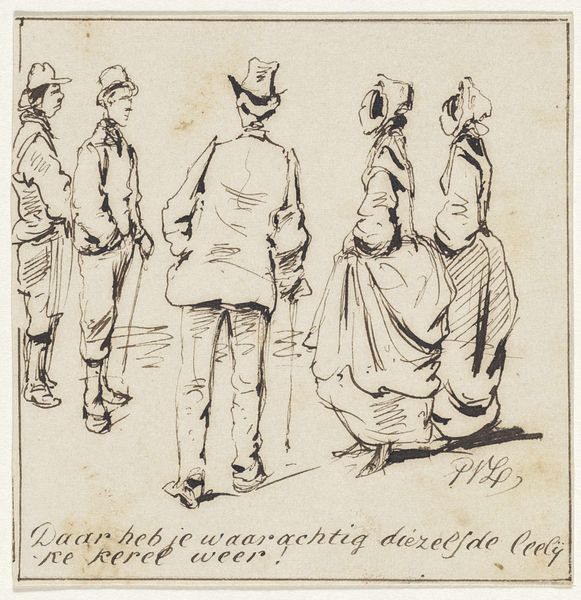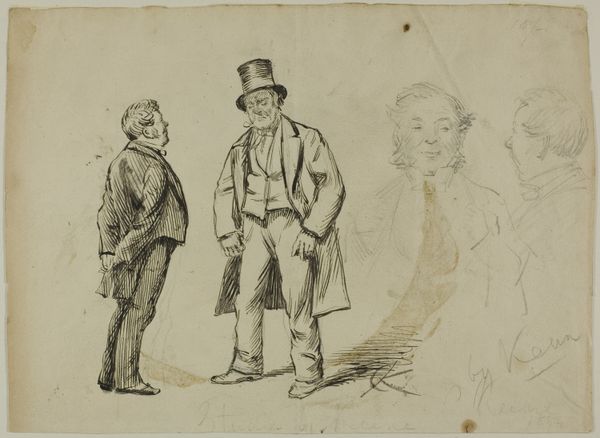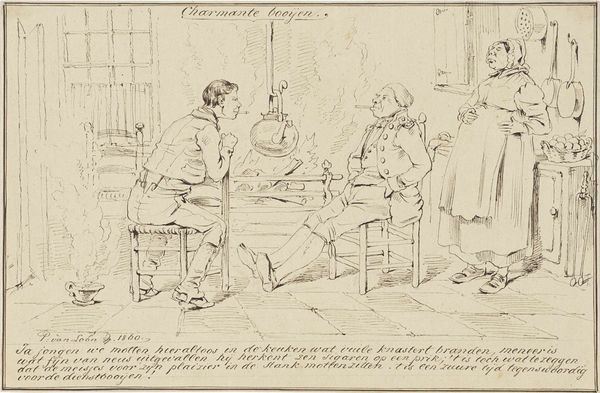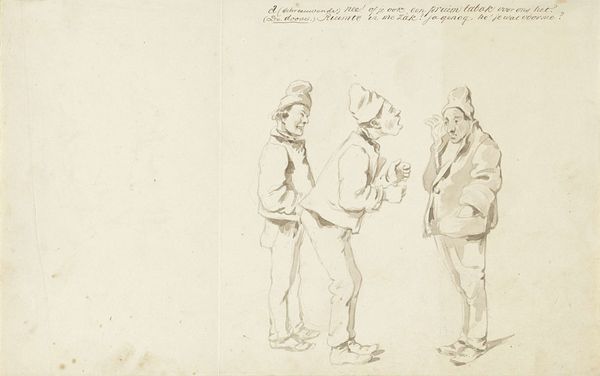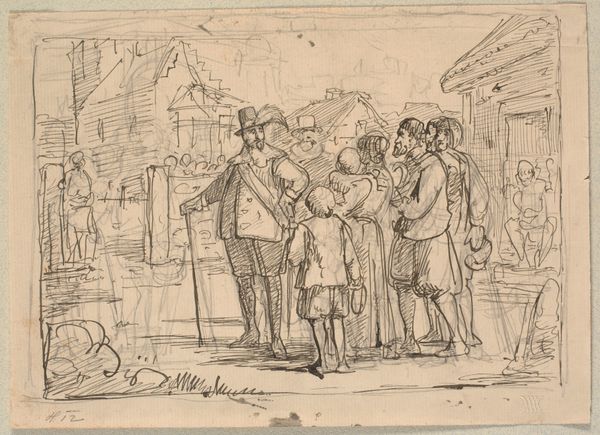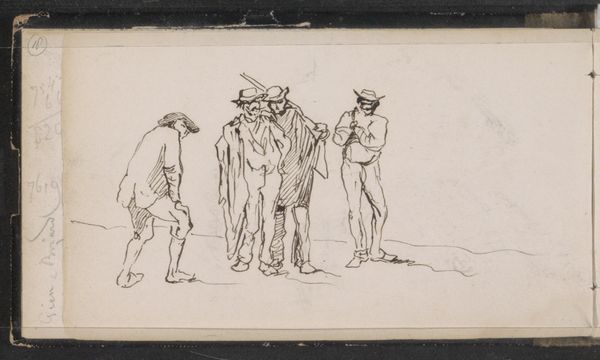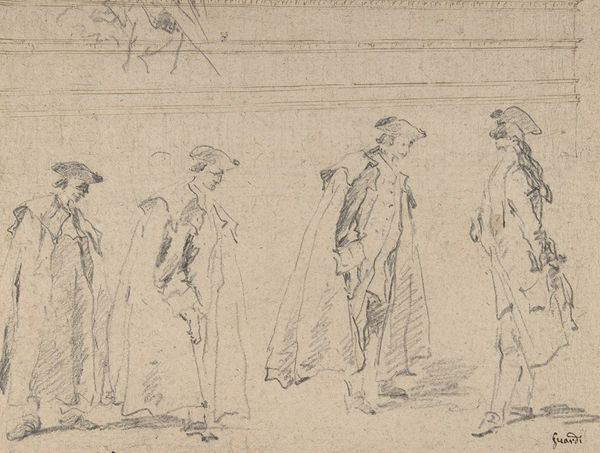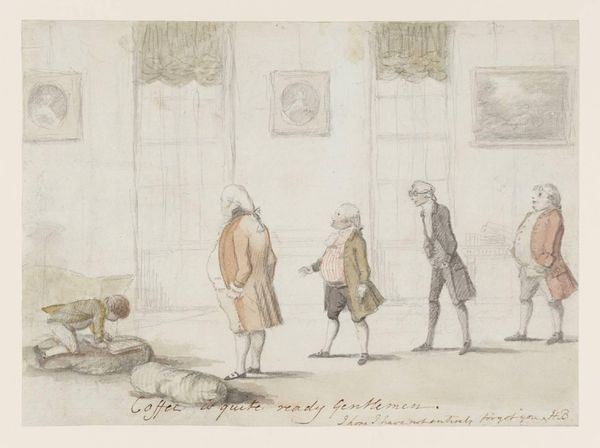
drawing, ink, pen
#
drawing
#
narrative-art
#
mechanical pen drawing
#
pen sketch
#
figuration
#
personal sketchbook
#
ink
#
sketchwork
#
ink drawing experimentation
#
pen-ink sketch
#
pen work
#
sketchbook drawing
#
pen
#
genre-painting
#
storyboard and sketchbook work
#
sketchbook art
#
realism
Dimensions: height 104 mm, width 167 mm
Copyright: Rijks Museum: Open Domain
Editor: Pieter van Loon's "Group of People at a Cafe," created around 1870, is an ink and pen drawing held at the Rijksmuseum. It's interesting –almost like a quick study, capturing a fleeting moment with such simple materials. What particularly strikes you about this piece? Curator: As a materialist, I'm immediately drawn to the process of its creation. Look at the rough, utilitarian nature of the ink and pen. This isn't about high artifice. Van Loon likely chose these accessible materials to quickly record observations from everyday life, challenging that separation. Notice how the medium and its limitations dictate the aesthetic. Editor: That's interesting; it does feel very immediate. What do you mean when you say it reflects on everyday life? Curator: Well, genre painting. Consider the cafe as a social space – a hub of labor, leisure, and consumption. Pen and ink, compared to oil paints or sculpting marble, speak of portability and access to those in rapidly-changing industrial urban environments. I am interested in where van Loon would have obtained this type of ink in this period; are there makers' marks to note, and where were they typically produced and purchased? Did this cafe also offer a space to acquire art supplies? Editor: So the materials themselves give us clues about the social context! It feels very different to the sort of painting one expects from the period. Curator: Precisely! And look at the sketching style: quick lines and minimal detail point to a process mirroring the transient nature of urban life. We should also consider what this means in the history of drawing as medium itself. Where can you trace similarities to earlier practices? Editor: It sounds like every aspect of this piece, from the ink to the café setting, is deeply connected to the socio-economic conditions of the time. Curator: Exactly. The drawing’s power lies in revealing these material and social relationships. Editor: That’s given me so much to think about. Thank you.
Comments
No comments
Be the first to comment and join the conversation on the ultimate creative platform.
